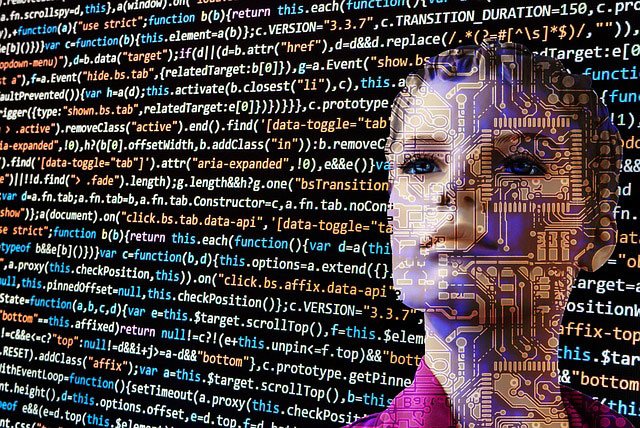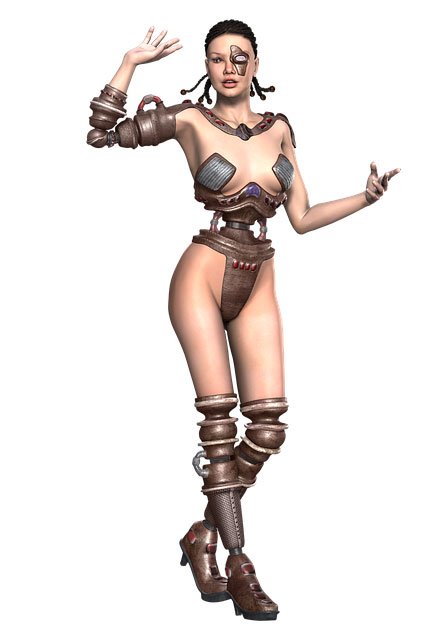AI Accountability and the Ethical Impact of Cyborgs
As artificial intelligence algorithms continue to develop, the actions that artificial intelligence systems will be able to perform require accountability as a way to be protected from actions taken by machines using AI.

Source
There's tons of science fiction about artificial intelligence technology, but we are far from actualizing the capabilities of robots gone bad that many movies show us. For now, we have AI involved in many decision handling processes such as for credit card applications, as well as self-driving cars that decides how to get you to your destination. Having an AI in a car means it's responsible for making decisions that result in hitting another car or running over someone. How does a car crash from two self-driving companies get resolved by an insurance company? Can they be compared on the same grounds, with the same measures and standards?
Obstacles to AI Accountability
1) Machine Diversity
Robots don't necessarily have AI in them. There is a distinction to make. Robots are hardware driven by software, and AI is capable if making decisions based on previous information gathered (i.e. "learned"). AI systems are also different from one another making it hard to come up with a universal accountability system.
2) Transparency
How does a particular AI system work? Knowing the specific algorithms for decision-making that are going to impact our life is something important to understand in order to verify how sound the operational capacity of that system is.
3) Construction
AI systems are often unseen features behind an interface we interact with, such as an artificial voice on a call line to direct your call, the spell check on your phone or the voice recognition software it might have. Is there a standard to develop for how the AI integrates with an interface?
Researchers, philosophers and other thinkers will continue to pursue action to get different countries to deal with these issues, such as passing legislation, so that we are prepared to deal with the issue and have measures already in place.
Cyborgs
Another specific area of concern is that of cyborg technology and the ethical impact that this technology will have on society.
Cyborgs originate from science-fiction, describing a human being who has had their natural body parts replaced with technological devices, such as replacing arms and legs. Recent years have seen mainstream adoption of the term since people with physical disabilities have been using technological augmentation through the use of prosthetics.
Athletes are also augmenting damaged body parts or replacing disabled parts with technology that allows them to meet or exceed the performance of athletes with natural bodies. This ability to use technology to essentially "cheat" and gain enhanced performance is an ethical concern that needs to be addressed.
Augmenting the body with technology will also apply to many other areas of human life, such as other jobs where people with augmented technology will get a job over those who are natural because the technology provides enhancements to perform better.
Is it ethical to allow people with extra corporal enhancements to compete with other people who don't have such technology? Able-bodied people will be replaced by those who have technological implants that make them faster or stronger at doing certain tasks. It's not only bionic replacement or assistance to make your arms or legs stronger, but there are already prosthetic enhancements for hearing, feeling and seeing.
You won't be able to compete and survive economically unless you get technological enhancements as well to modify who you are. This will create economic pressure for everyone to alter what it means to be human and drastically change the landscape of humanity.
On the other side of the coin, is it ethical to prevent such people with enhanced abilities to have the job that they are more qualified to do?
These issues might only be a thought experiment for now, but they will eventually become a reality as we continue to develop bionic and cybernetic technology that integrates with the human body to replace natural body parts and functionality.
As people seek to compete, they will continually find more ways to enhance their abilities by replacing more of their natural body. At some point, another question will arise as to what makes a human a human, if they are not longer really human?

Source
There's a big difference between using technology to assist us (glasses, computers, etc.), and integrating it into the physical body or replacing body parts.
References:
- How to hold AI accountable for its actions
- Transparent, explainable, and accountable AI for robotics, Science Robotics 31 May 2017: Vol. 2, Issue 6, eaan6080 , DOI: 10.1126/scirobotics.aan6080
- Is it time to assess the ethical impact of real cyborgs on modern society?
- To integrate and to empower: Robots for rehabilitation and assistance Science Robotics 31 May 2017: Vol. 2, Issue 6, eaan5593, DOI: 10.1126/scirobotics.aan5593

There are so many ethical questions we must answer in regards to AI, and possibly not much time to solve them. My greatest fear is that policy makers and governments in general will be too far behind to keep up and not understand the things they are doing or the impact it will have. Lets hope things go smoothly.
Indeed. Technology progresses fast, but humanity is slow to catch up on moral understanding.
Interesting article. Agree with your quote "embrace technology, but don't become it". I think the line between the two will become more and more gray in the future. It will not be possible to function in our society without being the technology. I just hope it will not be in my lifetime, but with the current speed of technology, I am not so sure.
Yes, I too don't look forward to this degradation of the human being to becoming piece of technology. Thanks for the feedback.
Scary, isn't it? But watch Hollywood blockbusters, they already present us our future. It will start in our lifetime i guess... yeaaaaahhhhh brainlink is coming ^^ prepare your exploits
Don't worry it will be completely save hehehe
You are posing some very interesting and challenging philosophical and ethical question and I love reading pieces that make me think.
I think what most people imagine as the future of AI is not really what the future holds. This is because we keep thinking in terms of our own type of consciousness while machines that have different purposes will process information and stimuli in entirely different ways.
It's all really fascinating to think about.
According to current artificial intelligence algorithms, most of them require large amounts of data. This artificial intelligence, once combined with other artificial intelligence methods, will require exponential growth. So artificial intelligence can only be retarded.
LOL, I like it! AI retardation! Nice! It's good to know they are stuck at a data limit for now that prevents them from actualizing creating an artificial mind that can turn the tables on its creator :\
Just make sure there is an off switch.
They say by 2030 a machine will be as smart as a human, and that by 2031 a machine will be as smart as every human combined, and that by 2032 we will all be ghosts in a shell.
More people need to see the visions for the future with unrestricted technological advancement for any purpose or desire. GitS and Psycho-Pass are great to see potentials.
I am checking both out now. Thanks for the heads up.
I kinda disagree with parts of this.
For one thing AI and automation aren' t the same thing. I'd go so far as to say that all we have at this point is automation. AI hasn't happened yet and in my opinion it's not likely too.
For another thing...humans are DEFINED by our technology. It began with the word. Language that is. Language is the tool for thinking. If you don't have language it's damn hard to think. Later on writing was developed...that meant thinking could be passed on to later generations with less loss and degradation. Oral tradition could only go so far...I mean..what ACTUALLY happened to Noah?
From writing...well it kinda snowballed.
but I digress.
The point is...who's gonna say?
If I want neural lace...who's gonna say I can't have it?
WE all should be scared lol on the other hand, I want to become a cyborg :-)
This was fascinating.
Have a follow, good sir.
If becoming a cyborg can improve cognition or life expectancy, I am not objected to it in the least...